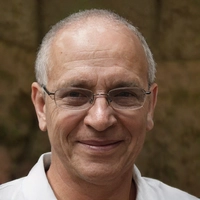To speak truth to power is duty of all: D Y Chandrachud?

27 Jan
Exploring the Power of Speaking Truth to Authority: D Y Chandrachud's Perspective
The idea of speaking truth to power has been a fundamental part of human history, and has been explored in many different ways. In India, former Supreme Court Judge Justice D Y Chandrachud is one of the most vocal proponents of this idea. His work has been particularly influential in the context of Indian democracy, and he has spoken out on a variety of issues related to the power of speaking truth to authority.Justice Chandrachud's thoughts on the topic are rooted in his belief that freedom of expression is essential to any functioning democracy. He believes that citizens have a moral obligation to speak out against injustice and abuse of power, and that speaking truth to power is an important part of this process. In his view, speaking truth to power is a form of resistance that can help to protect the rights of citizens and promote greater accountability within institutions of power.
Justice Chandrachud's work has explored the power of speaking truth to authority in a variety of contexts. He has argued that speaking truth to power is essential to ensuring that citizens have a voice in the political process, and that they can challenge established hierarchies and systems of oppression. He also believes that this type of expression should be encouraged, as it can help to bring about positive change in society.
Ultimately, Justice Chandrachud's perspective on speaking truth to power is rooted in his belief that the power of expression should never be taken for granted. He believes that citizens should always speak out against injustice and inequality, and that speaking truth to power is essential to ensure that the rights of all are respected and protected. By speaking out, citizens can push back against oppressive systems and create a more equitable society.
Understanding the Duty of All to Speak Truth to Power: D Y Chandrachud's Insight
The Indian Supreme Court Justice D Y Chandrachud has become known for his insights on the duty of all to speak truth to power. In a speech delivered in 2016, Justice Chandrachud stressed the importance of ensuring that all citizens are in a position to speak truth to power. He argued that the rule of law and democracy become stronger when the governed are empowered to voice their opinions on matters of public interest.Justice Chandrachud emphasised that everyone should have the right to challenge power and those in authority. He argued that dissent is an invaluable exercise of the right to freedom of speech and expression. He also highlighted the need for a system of checks and balances in order to ensure that power is not abused.
Additionally, Justice Chandrachud argued that the rule of law is strengthened when those in power are held accountable for their actions. He emphasised that those in authority should not be allowed to act with impunity. He argued that the law must be applied equally to all, and that those in power should not be allowed to use their authority for personal gain or to suppress the voices of the oppressed.
Justice Chandrachud's insights on the duty of all to speak truth to power have been widely praised. His speech has been seen as a powerful reminder of the need for citizens to stand up for their rights and to challenge those in authority when necessary. He has also been credited with inspiring many individuals to speak out against injustices and to demand accountability from those in power.
